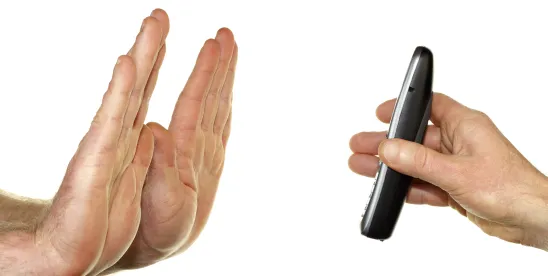A while ago, Blake Landis wrote an incisive article on the outcome of a discovery dispute with critical insights into the evolving landscape of electronic discovery: DECODING DISCOVERY: Cracking the Code on 30(b)(6) Depositions and Data Disputes – TCPAWorld
This article serves as an update to that one from October 11, 2024.
But first, a little background.
David Elliot v. Humana, Inc., No. 3:22-CV-00329-RGJ-CHL, 2024 WL 4545985 is a putative class action filed against Humana for allegedly violating the Telephone Consumer Protection Act (“TCPA”). Plaintiff Elliot seeks to certify a “wrong number” class against Humana.
The source of the present discovery dispute was the Plaintiff’s request that Humana produce all databases that show wrong person, wrong number, bad number, and similar notifications. Humana responded that it maintained invalid numbers by manually editing member profiles in the CGX system, that such files were not available in a searchable form, and that it did not have a feasible method for gathering the information in a manner proportional to the needs of the case.
Several corporate representatives of Humana were deposed under Rule 30(b)(6), the last of which occurred after the close of discovery. As a result of the most recent deposition, Plaintiff filed a motion to compel an additional Rule 30(b)(6) deposition and discovery of the CGX files, as well as for sanctions for allegedly failing to prepare the corporate representative adequately.
The Magistrate Judge granted the motion to compel an additional Rule 30(b)(6) witness and production of electronically stored information from the CGX system but denied the motion as to sanctions.
Humana objected to the Magistrate Judge’s order.
The Magistrate Judge’s Order
In his order, the Magistrate Judge determined that the information from CGX is relevant to establishing the numerosity and commonality requirements of class certification and proportional to the needs of the case, rejecting Humana’s argument that producing the information was not proportional to the case. The Magistrate Judge reasoned that the burden of producing the documents is outweighed by the Plaintiff’s need for the relevant information, especially given the burden appears to be the result of Humana’s choice in how to store the information and that Humana has the resources to design a method to search a database that it created.
The Magistrate Judge further reasoned that Plaintiff had good cause not to seek the information earlier in the case as it was not clear until after the third corporate representative was deposed that the information only existed in CGX.
Humana presented four objections to the Magistrate Judge’s order:
- It was error to even consider the motion to compel due to its timing,
- The Magistrate Judge did not consider and weigh all elements of proportionality,
- It was based on allegations of Plaintiff not supported by the record, and
- It unreasonably extended discovery thereby severely prejudicing Humana.
The court considered each of these factors individually:
Timing of Motion to Compel
Humana argued that Plaintiff failed to meet and confer before filing the motion to compel, contrary to the requirements of Fed. R. Civ. P. 37(a)(1). Humana stated “[i]t is simply impossible for Plaintiff to take the position that he only became aware of the information in CGX after Humana’s third corporate representative’s deposition on August 28, 2024… while also stating he attempted to meet and confer as early as April 2024.”
However, the Court held that Plaintiff did not take the position that he first learned about the existence of the information in CGX after the corporate representative’s deposition. Instead, Plaintiff stated that the testimony of Humana’s first corporate representative indicated the information contained in CGX was also contained in the hCAT system, and it was only during the most recent corporate representative’s deposition that this belief was contradicted. Therefore, there was no dispute as to whether Plaintiff was aware that the information existed in CGX – rather, Plaintiff learned that the information could only be garnered through CGX and not hCAT.
The Magistrate Judge found that Plaintiff had good cause for not seeking the CGX discovery earlier in the process to avoid duplicating discovery, given the belief the discovery could be obtained by less burdensome means. Moreover, Plaintiff had attempted to confer about obtaining the information under the belief it was in the hCAT system, and, given that he learned that the information was only in CGX after the close of discovery, there likely was not time to reach an agreement. Additionally, Humana had been objecting to producing the CGX files since its first response to Plaintiff’s discovery requests from 2022. The Court determined that in light of Humana’s continuing objection, any additional meet and confer may have been futile.
Weighing the Elements of Proportionality
Humana argued that the Magistrate Judge failed to weigh and consider all the elements of proportionality under Fed. R. Civ. P. 26(b)(1). Specifically, Humana argued the Magistrate Judge failed to consider the amount in controversy and whether the burden of the proposed discovery outweighs the likely benefit.
Humana stated that under the TCPA, 47 U.S.C. 227(b)(3)(B) and (c)(5)(B), damages are at most $1,500 per violation, and the amount in controversy does not justify the expense of producing the CGX documents. The Court determined that Humana waived this argument by not raising it before the Magistrate Judge. However, even if the argument was not waived, the Court was not persuaded that the amount in controversy per violation does not justify the expense of production, as a putative class action necessarily seeks small recoveries that do not provide the incentive for any individual to bring a solo action.
Humana also argued that the Magistrate Judge failed to appreciate the burden of producing the CGX documents. However, the Court held that the Magistrate Judge considered Humana’s extensive burden in producing the CGX information but disagreed with the assertion that the burden outweighed the likely benefit. Moreover, Humana failed to explain how much time it would need to reasonably search and produce the information.
Support in Record for Special Circumstances
Humana objected to the Magistrate Judge’s determination that special circumstances exist to warrant reopening discovery. Again, Humana argued that Plaintiff should have sought a production of CGX earlier in the case.
The court reviewed testimony and disagreed with Humana’s assertion that the first corporate representative’s testimony should have led Plaintiff to believe that the information from CGX, which Humana objected to producing, could be garnered from hCAT. Therefore, the Court held that the Magistrate Judge did not err in finding special circumstances existed to allow the discovery after the deadline.
Prejudice to Humana
Finally, Humana objected that the order unreasonably extended discovery to severely prejudice Humana because it was given five days to produce the information. Humana argued that the Magistrate Judge did not consider the prejudice to Humana and Fed. R. Civ. P. 16(b)(4)’s “good cause” factors for reopening discovery: (1) when the moving party learned of the issue, (2) how the discovery would affect the ruling, (3) the length of the discovery period, (4) whether the moving part was dilatory, and (5) whether the adverse party was responsive to prior discovery requests.
However, the Court found that the Magistrate Judge’s order expressly or implicitly addressed all these factors, including the prejudice to Humana. Humana had also failed to provide an alternative timeframe for the Court to consider and did not explain how the CGX production is irrelevant other than making the bare bones objection.
Therefore, the Court overruled Humana’s objections to the Magistrate Judge’s order.
One of the key takeaways from this ruling is the importance of fleshing out objections to discovery requests. Courts are no longer willing to accept bare bones objections of burden and proportionality, especially in the context of electronically stored information. As Blake reminded us – arguments of technical infeasibility will be scrutinized closely.




 />i
/>i

